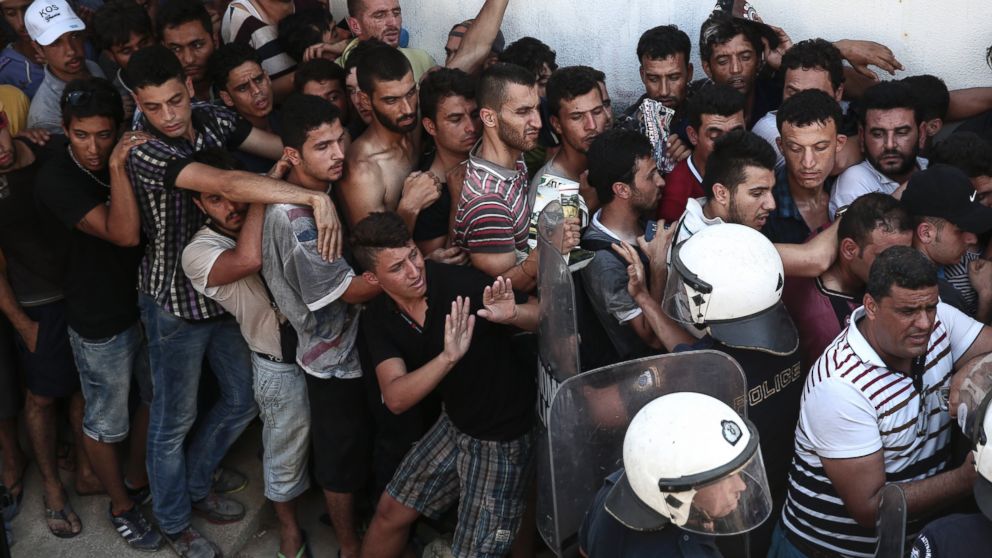Thousands of Syrian and Afghan Migrants Stuck in Hot Stadium in Greece, Aid Group Says
Local police are using increasingly heavy-handed tactics, aid group says.

— -- More than 2,000 refugees have been stuck for at least 18 hours inside a stadium in the Greek island of Kos, waiting for an opportunity to give their name to the police in the hope of being registered, according to the aid group Doctors Without Borders.
Waiting in the sun with no on-site facilities, many, including women and children, have fainted, according to the group, also known by its French name, Médecins Sans Frontières (MSF). Images on Greek television also show police dispersing people by spraying them with fire extinguishers.
“MSF is very worried about how the situation is evolving in Kos,” MSF Director of Operations Brice de le Vingne said in a written statement. “What was previously a situation of state inaction is now one of state abuse, with police using increasing heavy handed force against these vulnerable people."
Over the last two weeks, more than 7,000 refugees have arrived to the island, a two-fold increase compared to June, according to various aid agencies.
In the absence of official reception facilities, migrants have set up tents in public parks and squares in Kos. However, police are now conducting eviction operations, directing the migrants towards the stadium.
MSF teams report that they have witnessed "harassment of migrants in public spaces, including private security men forbidding them from sitting on park benches in the city center," the written statement says.
“Eight months after MSF’s first call for the Greek authorities to organize decent and humane reception in the islands of the Dodecanese, specifically on the island of Kos, we are appalled to see that the Greek state has failed to do so,” Brice de le Vingne added.




